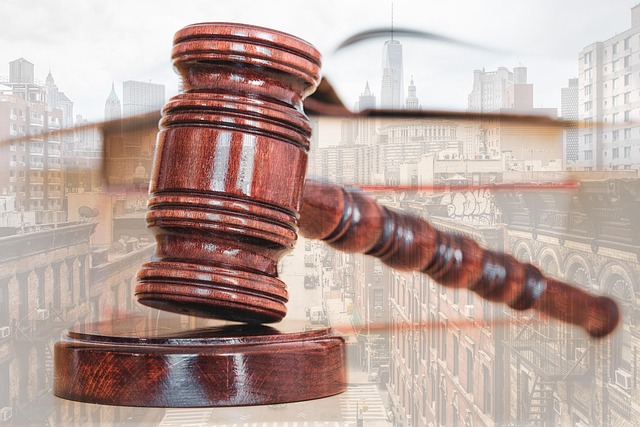Regulatory fraud laws, guided by the Federal Sentencing Guidelines for Drug Offenses, are crucial for maintaining integrity in industries, especially pharmaceuticals. These laws combat intentional deception to evade regulatory bodies for financial gain, with penalties influenced by drug value, planning, and public health impact. Legal professionals help clients navigate these guidelines, aiming for favorable outcomes. Enforcing these laws involves collaboration between agencies, prosecutors, and regulatory bodies like the SEC, using guidelines to investigate securities fraud. Preventive measures, aligned with guidelines, include robust internal controls, employee training, and audits to mitigate regulatory fraud and enhance corporate accountability.
In an era where regulatory compliance is paramount, understanding and combating regulatory fraud has become a top priority. This comprehensive guide delves into the intricate world of Regulatory Fraud Laws, focusing on their key definitions and scope. We explore federal sentencing guidelines specifically tailored to drug offenses and their profound impact. Additionally, we scrutinize the roles of enforcement agencies and prosecutors in upholding compliance, while offering insights into preventive measures like corporate accountability and robust internal controls.
- Understanding Regulatory Fraud Laws: Key Definitions & Scope
- Federal Sentencing Guidelines: Drug Offenses & Their Impact
- Enforcing Compliance: Role of Agencies & Prosecutors
- Preventive Measures: Corporate Accountability & Internal Controls
Understanding Regulatory Fraud Laws: Key Definitions & Scope

Regulatory fraud laws are a critical component of maintaining integrity within various industries, particularly in cases involving drug-related offenses. Understanding these laws begins with defining key terms and grasping their scope. Regulatory fraud refers to the intentional manipulation or deception aimed at evading or misleading regulatory bodies, often for financial gain. This can take many forms, from falsifying records to concealing illicit activities.
The Federal Sentencing Guidelines for Drug Offenses play a significant role in shaping penalties for those convicted of regulatory fraud related to drugs. These guidelines consider the nature and extent of fraudulent activities, focusing on factors like the value of drugs involved, the level of planning, and whether the offense led to any harm or risk to public health. By understanding these definitions and the scope of these laws, both corporate and individual clients can navigate all stages of the investigative and enforcement process, striving to avoid indictment while adhering to legal requirements.
Federal Sentencing Guidelines: Drug Offenses & Their Impact

The Federal Sentencing Guidelines play a pivotal role in shaping penalties for drug offenses, significantly impacting outcomes in high-stakes cases. These guidelines are designed to promote consistency and fairness across different jurisdictions, taking into account various factors such as the type and quantity of drugs involved, the defendant’s criminal history, and their role in the crime. The severity of sentences can vary greatly under these guidelines, from substantial fines and community service for lesser offenses to lengthy prison terms and asset forfeiture for more significant ones.
For his clients facing drug charges, understanding these guidelines is crucial. Skilled attorneys can navigate this complex landscape, advocating on behalf of their clients to achieve the best possible outcome. In some cases, this may result in a complete dismissal of all charges, especially when mitigating factors are presented effectively.
Enforcing Compliance: Role of Agencies & Prosecutors

Enforcing compliance with regulatory fraud laws is a collaborative effort between various agencies and prosecutors. These key players work together to ensure that businesses and individuals adhere to the rules set forth to protect consumers, investors, and the overall integrity of the market. Federal agencies like the Securities and Exchange Commission (SEC) play a crucial role in investigating and prosecuting cases of securities fraud, utilizing tools such as the Federal Sentencing Guidelines for Drug Offenses to determine penalties.
Prosecutors across the country have been actively pursuing cases involving fraudulent activities, seeking justice and deterring potential wrongdoers. Their efforts often result in agreements that may include fines, restitution, and in some instances, a complete dismissal of all charges, depending on the severity of the offense and cooperation with investigations. This coordinated approach is essential to maintaining trust in regulatory systems and serving as a deterrent for those contemplating engaging in fraudulent activities within the general criminal defense framework.
Preventive Measures: Corporate Accountability & Internal Controls

Preventive measures play a pivotal role in mitigating regulatory fraud, and corporate accountability is a cornerstone of this strategy. Organizations must establish robust internal controls to deter and detect fraudulent activities. This involves implementing stringent policies and procedures that align with industry regulations. For instance, the Federal Sentencing Guidelines for Drug Offenses outline specific criteria for evaluating corporate compliance programs, emphasizing proactive measures like training employees, conducting regular audits, and fostering a culture of ethical conduct.
By integrating these guidelines into their risk management strategies, companies can better navigate high-stakes cases involving white-collar defense. Effective internal controls serve as a shield against regulatory fraud, ensuring that organizations are prepared to face the scrutiny of general criminal defense attorneys and maintain the integrity of their operations.
Regulatory fraud laws, particularly those pertaining to drug offenses under the Federal Sentencing Guidelines, serve as a cornerstone in combating illicit activities and upholding public trust. By understanding key definitions, the roles of enforcement agencies and prosecutors, and implementing robust internal controls, corporations can navigate these regulations effectively. Preventive measures, such as corporate accountability, are essential not only for legal compliance but also for fostering integrity within organizations. Together, these strategies contribute to a safer, more transparent landscape for all stakeholders.






